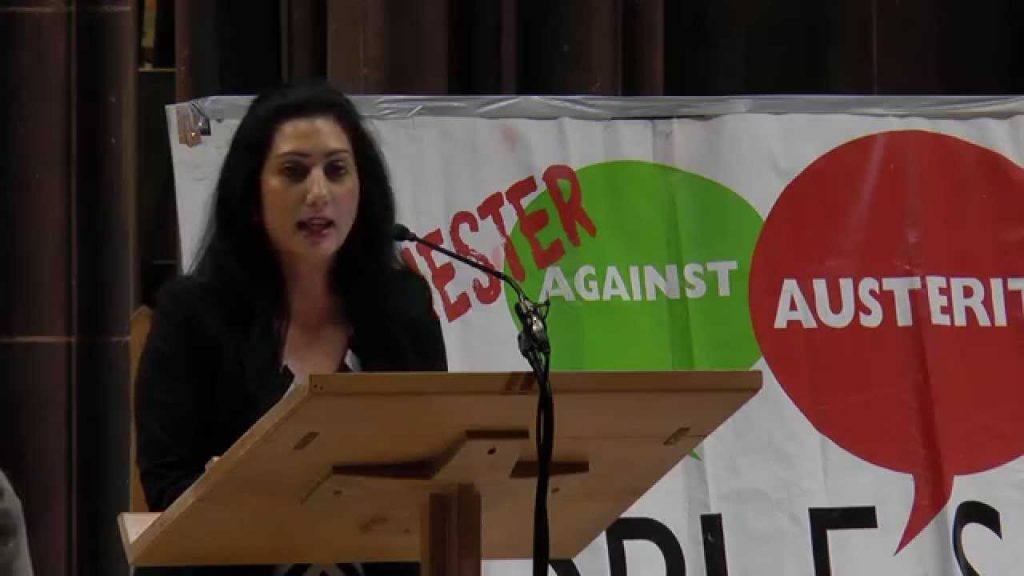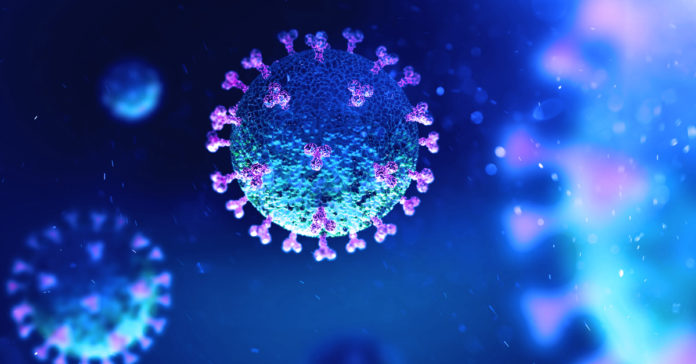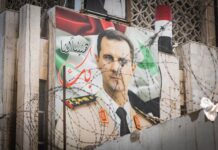5Pillars asked Manchester GP Dr Siema Iqbal what it’s like on the frontline against coronavirus, and what Muslims need to know about a disease which could affect our community more than most.
5Pillars: As a GP you are on the frontline of the coronavirus outbreak. What have you seen in your surgery over the past few weeks?
Siema Iqbal: Basically we had to change the way that we work completely in order to keep our staff safe and ensure that patients have a place that they can be seen without the risk of catching coronavirus.
Before we used to see emergency patients who would walk in and have pre-bookable appointments, but now in order to see a GP you have to ring the practice, you will get triaged by a doctor who will decide whether the problem is urgent and try and deal with it down the telephone or a face-to-face consultation if you, or any of your member of your household, does not have a cough or a fever.
5P: What kind of pressures are the NHS under?
SI: We already know that the NHS was totally pushed to the edge of its capacity, so we do not have an NHS that is going to cope with an influx of very ill, poorly people due to coronavirus in a very short space of time. We simply do not have enough ventilators or staff to manage this.
There will be some very tough decisions that will need to be made when this illness actually peaks because we have a limited number of ITU beds and therefore decisions as to who should be essentially resuscitated and given an ITU bed will have to be made at that point.
Subscribe to our newsletter and stay updated on the latest news and updates from around the Muslim world!

5P: Is this any different from the flu?
SI: Both viruses are highly infectious diseases and are similar in the way they have symptoms, transmission and prevention, but the difference is that right now we’ve got a vaccine and medications to treat the flu but have no vaccine or medication for COVID and we know very little about it.
What makes COVID particularly dangerous is that we normally vaccinate the elderly and those in high risk groups to stop them getting seriously ill, whereas with this we can’t stop the severity or the complications which will be life-threatening for those of a certain age, for example 65 or over, or those who have chronic medical conditions.
5P: What would you say to those Muslims who believe coronavirus is a big conspiracy? A biological weapon gone wrong, a conspiracy by pharmaceutical companies to sell us a vaccine, or a means of population control?
SI: I can honestly say that from the testimonies that I’ve heard, from the planning that’s been done and the patients who’ve presented at hospitals, this is a virus and I think it’s really unhelpful to say that it’s anything else right now.
5P: If you get coronavirus how worried should you be?
SI: If you get coronavirus you shouldn’t be worried because you’re most probably going to have a mild illness and you will recover. But we’ve had 104 deaths so far and these tend to be people who have underlying medical conditions who have things like heart conditions, are immunally suppressed or who are on dialysis.
If you have heart disease, diabetes or are obese then you are at greater risk of complications if you contract coronavirus. If you get a temperature or a cough you must isolate yourself and your household for 14 days. We think the virus is spread through droplets or by contact so it is important to wash your hands and you need to wash them with warm water for at least 20 seconds. And if you do that and avoid touching your face then hopefully you should stay well.
Kids with coronavirus are less severely affected but that doesn’t mean they don’t get it.
If you have a temperature or a cough do not go to your GP or hospital or pharmacy; you have to go online at 111 or ring 111 if you can’t cope with your symptoms or don’t get better after 7 days.
5P: The elderly are a high risk category. What should we be telling our elderly relatives who perhaps live with us?
SI: It is difficult to be isolated from other members of your family but you do have to be self-isolated if you contract the virus, whether it be for 7 or 14 days. You do have to think about how you going to access food and make sure you stay in touch with people. You’ve got to make sure you know how to access 111 and if you are living with a vulnerable person you have to do things like make sure you’re two metres away, make sure you’re using different towels, make sure you minimise the time you spend in shared spaces such as kitchens and bathrooms and sitting areas, and make sure you keep shared spaces well ventilated.
If you use a toilet or bathroom with a vulnerable person you have to make sure you clean every time you use them. So wipe surfaces down and try to make the vulnerable person use the facilities first. And if you’re using a kitchen with somebody who’s elderly or at high risk avoid using it while they’re present. Use a dishwasher if you can to clean any cutlery.
5P: Muslims are very social people; it’s going to be tough for us to self-isolate.
SI: I think it’s tough for anyone to self-isolate, it does have an impact mentally especially if the self-isolation is for a long period of time. So we have to try and make things easier for them by making sure they can talk to neighbours and family or access social media just to make sure that they can do things other than just being sat at home. They can do things like go for walks in the park if they’re not unwell so long as they stay two metres away from other people. They can also try to do some light exercise in their homes.
But if you are ill you can’t go to work, you can’t go to school or public areas, use taxis or public transport. If possible you shouldn’t even go out to buy food and essentials and this is where you really need to work as a community to get help to pick up these kind of essentials.
5P: Do you think Muslims are complacent about this? I’ve noticed a lot of Muslims aren’t happy about mosque closures and are saying Allah will protect us if we go to the mosque.
SI: A lot of Muslims that I know understand very well why mosque closures need to happen in order to keep the elderly and very vulnerable in society safe. Even if the government isn’t showing the lead on this they feel it is their duty to keep the Muslim community and the wider community safe.
And people who are ignoring the NHS guidance really need to think about their behaviour; it isn’t only going to affect them, it will affect the wider community and the at-risk groups such as the elderly and vulnerable who might become very unwell.
5P: What can Muslims do for the wider community?
SI: They need to focus on their own local community and know who is self-isolating in their own neighbourhood. Who lives alone? Who has single parent families with kids who are struggling when they self-isolate to go out and get groceries? They may be struggling because of the panic buying and I really do encourage people to stop panic buying because you may be denying those who have needs such as nappies or wipes from accessing things that they need. There’s enough for all of us.
5P: Should we prepare our wills?
SI: I think we should have a will whether coronavirus is there or not; I think that’s sensible. Your end is written but we don’t know when that is going to be so it would be sensible to plan.
5P: Are you staying well yourself?
SI: I think the PPE (protective) equipment that we’ve been given is not adequate and I think as NHS 111 gets overwhelmed we will have GPs on the front line who are likely to see more patients who have, or are likely to have, COVID. So we are putting ourselves at risk and then taking that risk back home and then passing it on to the elderly or kids if we live with them. I also currently have a husband who has all the symptoms so it’s a difficult time.










![The Taliban’s Road To Success [Short Film]](https://5pillarsuk.com/wp-content/uploads/2024/11/Kabul-roadworks-thumbnail-218x150.png)









